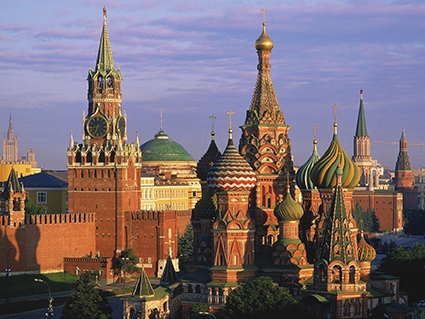Russia’s Response to the West’s Attack on Syria: Heading towards Self-Isolation?
Op-Ed
Several days ago, the US and its allies coordinated airstrikes against the Syrian state. The results were not extraordinary in terms of facilities destroyed or death toll of the Syrian state army. The Russians were warned beforehand, enabling them to withdraw all the necessary Syrian technologies and personnel from the target facilities. The Wall Street Journal even reported that Donald Trump considered striking Russian and Iranian military capabilities, but was overruled by his team for fear of the Russian response.
Nevertheless, the real addressee of the attack was not so much Damascus, but Russia – Syria’s main ally. In diplomacy, that means that any further chemical attacks, like the one perpetrated on April 7, will be punished with military strikes. In addition, it was also reported that the US will introduce new sanctions against Russian companies helping the Syrian government to work on chemical elements.
Russia sees this as a yet another escalation with the West. Moreover, Western intervention also undermines Moscow’s dominant position in Syria. Russian efforts to maintain such a posture on the Syrian battlefield have been shaken. The Turkish operation in Afrin, in the north of the country, made it clear that Moscow is unable to forestall the growth of Ankara’s influence. Iranian proxy forces are now close to the Israeli border, and Russia failed to accomplish anything significant in various peace conferences on Syria. Moreover, Russian mercenaries were also killed by the hundreds, according to some reports, by US forces, diminishing Russian prestige in and around Syria.
Towards Self-Isolation
In response to the US string of sanctions, the Russian lawmakers are now considering banning a number of US products in Russia. It is interesting how Russia is willingly closing itself off from the rest of the world.
It is also worrisome how far this sanctions war between the two sides will go, but the argument on the Kremlin becoming increasingly detached from the rest of the world still stands. I know of nothing like this in Russian history. Perhaps Stalin’s Soviet Union in the late 1920-early 1930s, but disturbances in Europe forced France, Great Britain and then Germany to work with the Soviets. Russia in the past several centuries, whatever the grievances it harbored towards the West, always worked with the latter and was largely a part of the international system.
Nowadays, differences between Russia and the West run across almost every major international issue, making it impossible to reach a fitting compromise. And there are tiny indications which lead us to think that Moscow will further distance itself from Europe and the US.
Of concern is the fact that this mentality is widely present within Russian circles. Last week, in a piece for GT, I mentioned an article by Vladislav Surkov, Putin’s aide on domestic polices, on how Russia began detaching itself from Europe/the West following the Ukraine crisis in 2014. It is fascinating that the Russian political figures now no longer negate the possibility of a final divorce with the West. Surkov stated in the article that all the experiments on the westernization of Russia have ended unsuccessfully – making the country a separate world, neither European nor Asian.
That is logical to expect from as big a country as Russia, but the problem is that in order to be competitive in the modern world, it all comes down to having a powerful economy. And in that component, Russia lags behind and will for at least another decade, according to some estimates.
As I said, at no point in history was Russia so detached. Even in the Soviet period it was still a champion of almost half the planet – the communist world. Moreover, the Soviets were also a big part of the world system which existed back then in the Cold War balance of power.
From a cold-blooded perspective though, Russia being detached from the West, which is a source of technological and economic progress, means that the country would not be able to progress significantly. It has not been able to do so on its own throughout centuries when the international situation was more comfortable, nor will it be possible pull it off in the self-isolated future it seems to be heading towards.
By Emil Avdaliani












